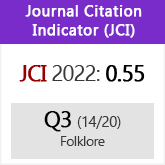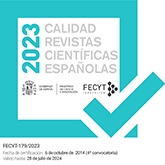Tiempo, memoria e identidad personal
DOI:
https://doi.org/10.3989/rdtp.2004.v59.i1.146Keywords:
Spanish Civil War, Soviet Union, Remembrances, Autobiographical Discourses, Memory, Personal IdentityAbstract
In his analysis of the oral and written narratives by the former children evacuated to the Soviet Union during the Spanish Civil War, the author reflects on the manner in which time, memory and personal identity interrelate in these accounts. He proposes a sociological approach to the subject, comparatively more independent than that of history or psychology. His analysis reveals that the subjective dynamics that contextualizes the discourses of these people —the manner in which they talk about the past, the present, the future, life and so forth— defines these discourses in terms not so much of coherence or attempt of achievement of a synthetic unity, a well-structured narrative drawn from an individual remembrance of the past, as of disruptions, contradictions and aporias that make the narratives disorganized and uneven—which is characteristic of the present social and subjective conditions of these former children.
Downloads
Download data is not yet available.
Downloads
Published
2004-06-30
How to Cite
Pazos, Álvaro. (2004). Tiempo, memoria e identidad personal. Disparidades. Revista De Antropología, 59(1), 189–202. https://doi.org/10.3989/rdtp.2004.v59.i1.146
Issue
Section
Articles
License
Copyright (c) 2004 Consejo Superior de Investigaciones Científicas (CSIC)

This work is licensed under a Creative Commons Attribution 4.0 International License.
© CSIC. Manuscripts published in both the printed and online versions of this Journal are the property of Consejo Superior de Investigaciones Científicas, and quoting this source is a requirement for any partial or full reproduction.All contents of this electronic edition, except where otherwise noted, are distributed under a “Creative Commons Attribution 4.0 International” (CC BY 4.0) License. You may read here the basic information and the legal text of the license. The indication of the CC BY 4.0 License must be expressly stated in this way when necessary.
Self-archiving in repositories, personal webpages or similar, of any version other than the published by the Editor, is not allowed.















